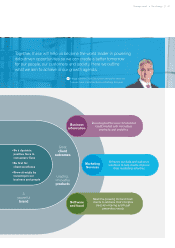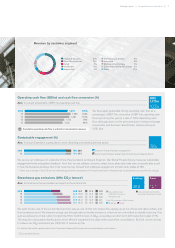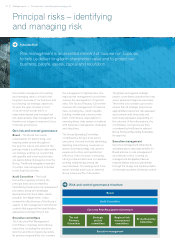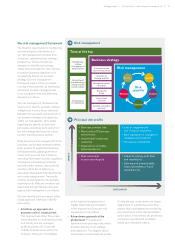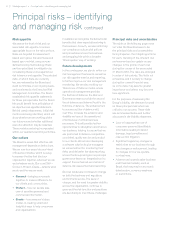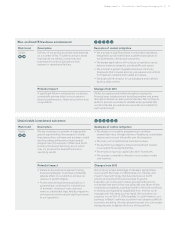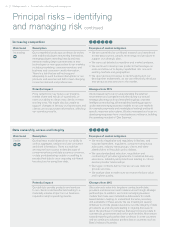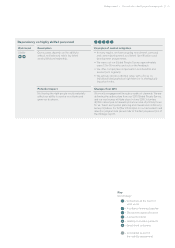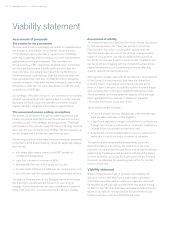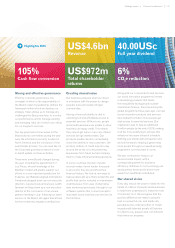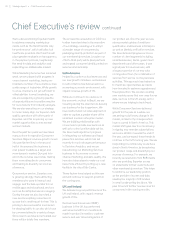Experian 2016 Annual Report Download - page 21
Download and view the complete annual report
Please find page 21 of the 2016 Experian annual report below. You can navigate through the pages in the report by either clicking on the pages listed below, or by using the keyword search tool below to find specific information within the annual report.
19
New legislation or changes in regulatory enforcement 1 4 5 6 V
Risk trend Description Examples of control mitigation
Increasing We operate in an increasingly complex external
environment, in which many of our activities
and services are subject to legal and regulatory
influences. New laws, new interpretations of
existing laws, changes to existing regulations
and/or heightened regulatory scrutiny could
affect how we operate our business. For
example, future regulatory changes could
impact how we collect and use consumer
information for marketing, risk management
and fraud detection. Regulatory changes could
impact how we serve Experian Consumer
Services’ clients or how we are able to market
services to clients or consumers.
• We use internal and external resources to monitor planned
and realised changes in legislation.
• We educate lawmakers, regulators, consumer and privacy
advocates, industry trade groups, our clients and other
stakeholders in the public policy debate.
• Our global compliance team has region-specific regulatory
expertise and works with our businesses to identify and
adopt balanced compliance strategies.
• We execute our Compliance Management Programme that
directs the structure, documentation, tools and training
requirements to support compliance on an ongoing basis.
Potential impact Changes from 2015
We may suffer increased costs or reduced
revenue resulting from modified business
practices, adopting new procedures, self-
regulation and/or litigation or regulatory
actions resulting in liability or fines.
Increasing regulation by the UK Financial Conduct Authority
(‘FCA’) and the US Consumer Financial Protection Bureau
(‘CFPB’), and various federal and state legislative actions
within Brazil, may impact our access to data, increase our
costs, require us to modify our products or negatively affect
our revenue. From 1 April 2014, the FCA has regulated credit
bureaux in the UK. Experian currently operates in the UK under
an interim permission and is in the process of obtaining full FCA
accreditation in 2016. The region experienced higher regulatory
costs as we prepared for FCA accreditation and made some
continued organic investments. In Brazil, certain states have
either enacted or are considering enacting laws requiring us
to mail and receive back more expensive return receipt letters,
before negative consumer credit information can be added to
our database. Whilst we are currently managing the effects
associated with return receipt letters, the long-term continuation
and proliferation of this type of legislation at the state and federal
levels could negatively impact our business and the businesses
of our clients.
Key
Our strategy:
1 – Consumers at the heart of
what we do
2 – A culture of winning together
3 – Disciplined capital allocation
4 – A powerful brand
5 – Leading, innovative products
6 – Great client outcomes
V – Considered as part of
the viability assessment
Strategic report •Principal risks – identifying and managing risk


